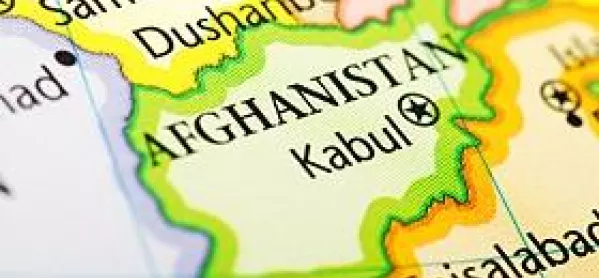Taliban ‘backs girls’ education’

In an interview with The TES, Farooq Wardak said discussions with the Taliban had led to an agreement that girls were entitled to go to school.
The development would mark a major U-turn: the Taliban administration that ruled Afghanistan from 1996 to 2001 outlawed the education of girls, with serious repercussions for those found flouting the rule.
Mr Wardak, who has been visiting England this week, also launched a strong attack on the British government for failing to provide sufficient funds to support education in Afghanistan. He said that the UK should consider re-directing money being spent on military intervention into developing schools.
Mr Wardak claimed there had been significant changes in attitude towards education since the Taliban was toppled and that they would not be reversed.
“It is attitudinal change, it is behavioural change, it is cultural change,” he said. “What I am hearing at the very upper policy level of the Taliban is that they are no more opposing education and also girls’ education.”
He added: “I hope, Inshallah, soon there will be a peaceful negotiation, a meaningful negotiation with our own opposition . and that will not compromise at all the basic human rights and basic principles which have been guiding us to provide quality and balanced education to our people.”
Mr Wardak said cultural barriers were gradually being overcome. “In the deepest pockets of our society, not only the Taliban, there was not very friendly behaviour with education. That is the reason that in many provinces of Afghanistan we do not have either male or female teacher.
“During the Taliban era the percentage of girls of the one million students that we had was zero per cent. The percentage of female teachers was zero per cent.
“Today 38 per cent of our students and 30 per cent of our teachers . are female.”
Mr Wardak conceded that there is still an enormous task ahead. In more than 400 districts and urban centres in Afghanistan, 200 still have no girls enrolled in high school, he said. In 245 districts there are no qualified female teachers.
“We need to improve the security situation tomorrow,” said Mr Wardak. “Of course that is our wish and our vision that there should be no more bloodshed in our country and there should be no school closed and no kid deprived of their basic human right of getting an education.”
Mr Wardak criticised the contributions made by the UK Government to improving education in his country.
The Department for International Development (DfID) spends around pound;130 million a year supporting different projects, with a focus on improving the country’s economic infrastructure and agriculture. Around half the overall annual contribution is given to the Afghanistan Reconstruction Trust Fund, allowing the Afghan government to choose how it is spent.
Mr Wardak praised the help given to improving schools by Norway, Denmark, Germany, Canada and the US, but said the UK should give more.
“I think they have been taking part in paying salaries of some teachers, but our expectation from our great friend and our great partner the Government of the United Kingdom is slightly more than that.
“We want them to invest in education because we believe that is the fundamental cornerstone and an important prerequisite for bringing a sustainable peace and a sustainable development and prosperity.
“My expectation is from the British Government that they should make more contribution.”
Asked whether that meant the British Government should redirect money spent on the armed forces into education, Mr Wardak said: “No sustainable development can take place without education, so let’s address the key prerequisite that is education, even if that is in the cost of a re- prioritisation of the resources allocated to Afghanistan.
“I think it has to be reconsidered that education must be the priority of our international partners, particularly the Government of the United Kingdom.”
A DfID spokeswoman said the British Government remained committed to improving education in Afghanistan: “Last year, the British Government financed the salaries of 169,000 teachers. We have helped Afghan communities to build schools in every province of the country.”
Path of progress: then and now
2001:
- Fewer than 1 million school students, no female pupils
- 20,000 teachers, no women
- 3,400 schools, most without usable buildings
- No unified curriculum
TODAY:
- Over 7 million school students, 38 per cent of whom are girls
- 180,000 teachers, 30 per cent of who are women
- 12,600 schools, half of which have usable buildings
- Standardised curriculum.
Keep reading for just £1 per month
You've reached your limit of free articles this month. Subscribe for £1 per month for three months and get:
- Unlimited access to all Tes magazine content
- Exclusive subscriber-only stories
- Award-winning email newsletters



